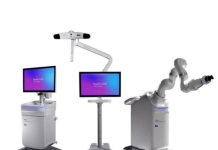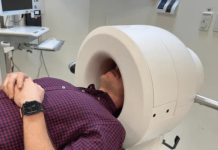Fasikl has received 510(k) clearance from the US Food and Drug Administration (FDA) for its Felix NeuroAI Wristband, designed to address tremor-related functional limitations in adults.
Essential tremor affects around seven million people in the US, causing involuntary shaking that complicates daily tasks, according to the company.
Related: Methinks AI receives US FDA 510(k) clearance for NCCT Stroke software
Traditional treatments, including medications and surgical options such as deep brain stimulation, often have limitations and risks.
In contrast, the Felix wristband is a wearable, non-invasive device that connects to Fasikl’s cloud-based AI platform, allowing for personalised therapy and continuous adjustment of stimulation.
Fasikl CEO Zhi Yang said: “FDA clearance of Felix marks a defining moment for Fasikl and the millions of people living with essential tremor who have long been underserved by existing therapies.
“This breakthrough in non-invasive, intelligent, and personalised neuromodulation marks the emergence of AI therapeutics in disease treatment. It offers a new option that is potentially more effective, safer, and more scalable.”
The FDA clearance is supported by data from the TRANQUIL study, which demonstrated significant reductions in tremors and improvements in daily activities compared to a sham device.
Fasikl presented the results at the American Academy of Neurology annual meeting in April 2025.
The TRANQUIL study involved 125 adults across 12 clinical sites in the US and China, with participants randomly assigned in a 2:1 ratio to receive either the Felix NeuroAI wristband or a sham device for 90 days.
The wristband will be available by prescription in select US regions starting in 2025, with availability across the country anticipated in 2026.
Fasikl, a spin-off from the University of Minnesota, utilises its platform to capture neural signals from peripheral nerves for adaptive therapy.




